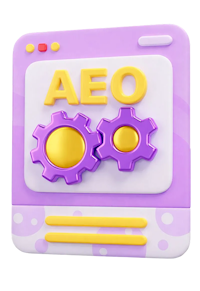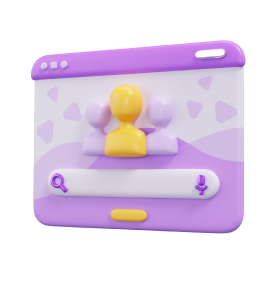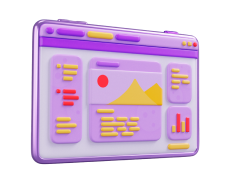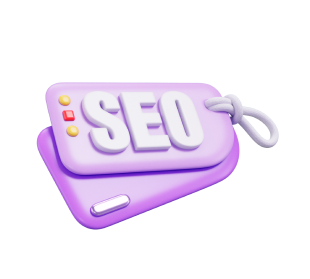What’s new in Facebook Messenger for businesses in 2025?
In brief:
- Advanced AI chatbots provide more sophisticated customer interactions and problem-solving
- Enhanced voice and video calls with AR features and improved collaboration tools
- Stronger business integration with CRM systems and marketing automation platforms
- Enhanced security with end-to-end encryption and improved privacy controls
- New AR/VR capabilities for immersive communication and 3D object sharing
Facebook Messenger remains a top-tier communication tool for businesses in 2025, with Meta consistently rolling out updates focused on AI, privacy, and commerce. Here’s how to leverage its latest features — from chatbots to AR tools — without compromising data security.
The platform continues to evolve as an essential business tool, offering automated customer service, direct sales capabilities, and integration with existing business systems. Understanding these features can help companies improve customer engagement whilst maintaining professional standards.
What Are the Key Features of Facebook Messenger in 2025?
Facebook Messenger will continue to evolve in 2025, providing users with new ways to communicate, share content, and conduct business.
| Feature | Practical Use Case | Setup Requirements |
|---|---|---|
| AI Chatbots | Automate responses to frequent queries (e.g., “What’s your return policy?”) | Meta Business Suite + FAQ list |
| AR Shopping | Let customers preview products via camera (e.g., sunglasses, makeup) | Meta Spark AR integration |
| CRM Integration | Sync chat history with tools like HubSpot or Salesforce | API access + third-party connectors |
| Payment Processing | Accept payments directly in chat conversations | Meta Pay setup + business verification |
| Automated Workflows | Route customer inquiries to appropriate departments | Business account + custom rules |
Integration with artificial intelligence. One of the main trends will be the more active use of artificial intelligence (AI) to improve user interactions with the messenger. In 2025, the messenger will support intelligent chatbots to conduct more complex conversations, answer questions, and help solve problems. These bots will learn from previous interactions, allowing them to provide more personalised answers and recommendations.
Improved voice and video calls. Communication technologies will continue to improve, and in 2025, FB Messenger will offer improved voice and video calls with high-quality and low-latency features. Video calls will support augmented reality (AR) features, allowing active users to add filters and effects in real-time and improve collaboration capabilities, such as screen sharing and document files.
Improved Business capabilities. For businesses, FB Messenger will become an important tool for connecting with customers in 2025. Integration with CRM systems and marketing automation tools will allow companies to manage customer interactions effectively. Brands can create personalised marketing campaigns using chatbots and automated Facebook messages, as well as use Messenger to process orders and provide real-time support. The platform will also support direct sales through the messenger, simplifying the purchase of goods and services.
More security and privacy. Each year, attention to user security and privacy increases. The messenger will offer new levels of data protection, including end-to-end encryption of messages, as well as improved tools for controlling personal information and privacy settings. Users can customise who can see their status, location, and other personal data.
New opportunities for AR and VR. Messenger 2025 will actively use augmented and virtual reality (AR/VR). Users can exchange AR messages in social media, create virtual spaces for communication, and share 3D objects. This will open new horizons for entertainment, games, and even work meetings in virtual reality.
How Can Businesses Use Facebook Messenger in 2025?
Around the world, Facebook continues to introduce new Messenger features that are designed to help businesses manage their contacts efficiently. Mark Zuckerberg once said that Facebook likes to wait until its product users grow to a billion before focusing on making money. As the demand for advertising inventory increases, Facebook must remain flexible in its core product offerings and offer additional opportunities for advertisers to reach their target audience through social media.
Messenger provides a variety of business apps and tools in social media that help companies effectively interact with customers, automate processes, and improve customer service. Effective social media management in 2025 will heavily rely on tools like FB Messenger.
Here are the main business messenger applications:
How to Set Up a Basic Chatbot in Messenger (2025 Guide)
Setting up a customer service chatbot requires these steps:
-
Access Meta Business Suite
→ Navigate to “Automation” section -
Choose a template
→ Select “Customer Service” or “Order Tracking” -
Add your FAQ content
→ Include common questions like shipping policies, contact details, business hours -
Test responses
→ Send sample questions to ensure proper functionality -
Monitor performance
→ Review unanswered queries and update responses
Note: Free Meta tools provide basic automation. Advanced features like natural language processing require paid platforms such as ManyChat or Chatfuel. Integration with existing CRM systems may need additional setup.
FB Messenger for Business This set of tools for companies allows you to integrate Messenger with CRM systems, manage messages, and automate customer communication. Messenger for Business helps create personalised marketing campaigns and tracks and analyses the effectiveness of user interactions.
Facebook Messenger Ads and Facebook Ads Advertising campaigns through FB Messenger allow you to target and engage Facebook users through communication via Messenger. This allows companies to run promotions, personalise offers, and interact directly with potential customers, creating higher levels of engagement.
How Do AI and Chatbots Work in Facebook Messenger?
A chatbot is a virtual interlocutor, a programme that can solve typical tasks: ask questions and answer them, search for request information, and carry out simple tasks. Artificial intelligence (AI) and chatbots are playing a key role in the evolution of Facebook Messenger, providing companies with new ways to engage with customers and automate business processes. These technologies have significantly improved communication efficiency, making interactions with brands more personalised and responsive.
Chatbots on the FB Messenger platform allow you to automate many tasks, such as handling requests, providing product information, resolving customer issues, and even completing transactions.
The role of AI in chatbots is to analyse large amounts of data and identify patterns in customer behaviour. This allows the messenger in social media to offer more relevant responses and services, which is especially important for improving customer support.
What Are the Future Trends in Messaging and Social Media?
Future trends in messaging and social media promise significant changes driven by technology advancements, changing consumer preferences, and new approaches to communication. Several messaging evolution trends will impact these areas in the coming years.
Integration with AI and automation. Among the most prominent trends are the active adoption of artificial intelligence (AI) and live chat bots in messaging. AI will improve user interactions, allowing chatbots more natural and personalised conversations. Such technologies will help automate many processes, including customer support and providing recommendations and content.
The rise of video content and AR/VR technologies. Video content will continue to dominate messaging and social media platforms. Integrating augmented reality (AR) and virtual reality (VR) technologies will make communication more interactive and engaging. Platforms will offer new formats, such as virtual meetings, where users can interact in live 3D spaces.
Deeper integration of messaging apps with commerce. Messaging apps will play a major role in online commerce. Companies will start using these platforms to sell directly, provide customer support, and execute transactions in real-time. Integration with payment systems and CRM will allow businesses to manage customer relationships better and provide uninterrupted service.
Tighter control over data and privacy. As users’ personal data volume increases, in the future, social networks and messengers will actively implement new data protection tools, giving users more control over their information.
Facebook Messenger: An effective tool for customer support. FB Messenger has become an essential tool for customer support. In 2025, Messenger will use bots to automate customer support and facilitate communication.
In 2025, Meta Platforms will continue to enhance Facebook Messenger, integrating advanced features.
Humanswith.AI helps businesses leverage Facebook Marketplace for growth by enhancing visibility, targeting the right audience, and streamlining sales processes. Through AI-driven insights and integration with e-commerce tools, businesses can reach more potential customers, manage inventory, and boost conversions. The platform also allows for better customer engagement. For more details, visit Humanswith.ai.
Frequently Asked Questions
-
Are Messenger chatbots free to use?
Meta provides basic chatbot tools at no cost through Business Suite. However, advanced features such as natural language processing, CRM integration, and detailed analytics typically require paid third-party platforms like ManyChat or Chatfuel.
-
Is Messenger secure for business communications?
All Messenger conversations include encryption capabilities. For payment processing, Meta Pay complies with PCI DSS standards. Businesses handling sensitive information should review Meta's data policies and configure appropriate privacy settings.
-
How do I integrate Messenger with my existing CRM system?
Popular CRM platforms like HubSpot and Salesforce offer direct integrations with Messenger. Third-party tools like Zapier can connect Messenger with other business systems. Custom API integration may require developer assistance.
-
What types of businesses benefit most from Messenger tools?
E-commerce, hospitality, and service-based businesses often see strong results from Messenger automation. Companies with frequent customer inquiries, appointment booking needs, or product catalogues typically find the platform most valuable.
-
Can I accept payments through Messenger?
Yes, Meta Pay allows businesses to process payments directly within chat conversations. This feature is available in multiple countries, though specific payment methods and fees vary by region. Business verification is required.














 Alex Sukhov
Alex Sukhov 
